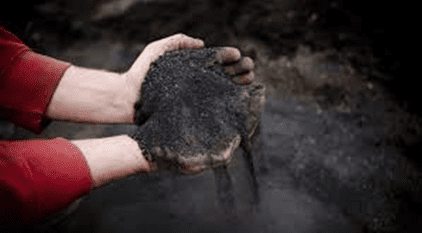While climate innovations often spotlight futuristic engineering, from direct air capture towers to atmospheric aerosols, one of the most transformative solutions lies directly beneath us: soil. When merged with advanced data analytics, diagnostics, and carbon market frameworks, soil can become a powerful climate infrastructure. Super Biochar is pioneering this by converting contaminated brownfields into verified, income-generating carbon assets.
Brownfields: Hidden Potential Beneath the Problem
Across the U.S., brownfields contaminated with PFAS, heavy metals, and industrial residues remain underused and expensive to remediate. Many of these soils are ideal candidates for biochar-based treatments capable of binding pollutants and locking away stable carbon. The key is proving, and auditing, this performance so remediation shifts from pure expense to measurable, marketable value.
Inside the Super Biochar System
Super Biochar’s platform integrates:
- AI-Customized Biochar Blends – Machine learning tailors feedstock, pyrolysis methods, and soil amendments to the precise chemistry and climate of each site, maximizing contaminant capture and carbon stability.
- Diagnostics and Data Traceability – Independent labs conduct multi-stage testing to quantify contaminant reductions, carbon persistence, and soil health changes, creating a verifiable “soil intelligence” record.
- Carbon Market Integration – Verified metrics feed directly into carbon credit protocols, ensuring each tradable credit is backed by measurable, site-specific remediation data.
Why Scaling Matters
- Scalable Impact – Biochar offers energy-efficient, large-scale potential compared to industrial carbon removal.
- Trust and Verification – Transparent diagnostics address the credibility crisis in voluntary carbon markets.
- Economic Renewal – Carbon valuation can transform idle brownfields into drivers of local growth and investment.
From Connecticut Pilots to Global Expansion
Early projects in Connecticut target municipal parcels, conservation lands, and farmland with legacy contamination. These pilots:
- Demonstrate site-by-site performance variations.
- Build datasets that strengthen AI blend optimization.
- Signal market readiness to regulators, carbon registries, and buyers.
The approach is designed to scale rapidly in areas worldwide facing severe soil degradation.
Key Challenges and Solutions
| Challenge | Solution |
| Variable soil conditions | ML clustering to optimize blends per soil strata. |
| Uncertainty in long-term carbon storage | Accelerated aging, isotopic tracing, and ongoing monitoring. |
| Regulatory alignment | Early collaboration with registries and agencies. |
| High startup costs | Incremental rollouts using public-private funding models. |
Market Opportunity
With voluntary carbon markets projected to surge, verified soil-based credits are emerging as one of the most trusted carbon removal categories. By coupling remediation grants with private investment, municipalities can unlock “remediation plus revenue” strategies—scaling far faster than costly engineering interventions.
Roadmap: 12–24 Month Milestones
- Publishing detailed CO₂ sequestration and remediation case studies.
- Securing multi-site remediation contracts.
- Issuing registry-approved credits rooted in soil metrics.
- Feeding expanded performance data back into AI models for continual improvement.
Closing Perspective
While climate innovation often looks skyward, the real revolution may be underfoot—turning dirt into data, and contamination into carbon value. By integrating AI precision, rigorous diagnostics, and transparent market mechanisms, Super Biochar is reframing soil as central climate infrastructure rooted in measurable impact, local trust, and economic upside.





























